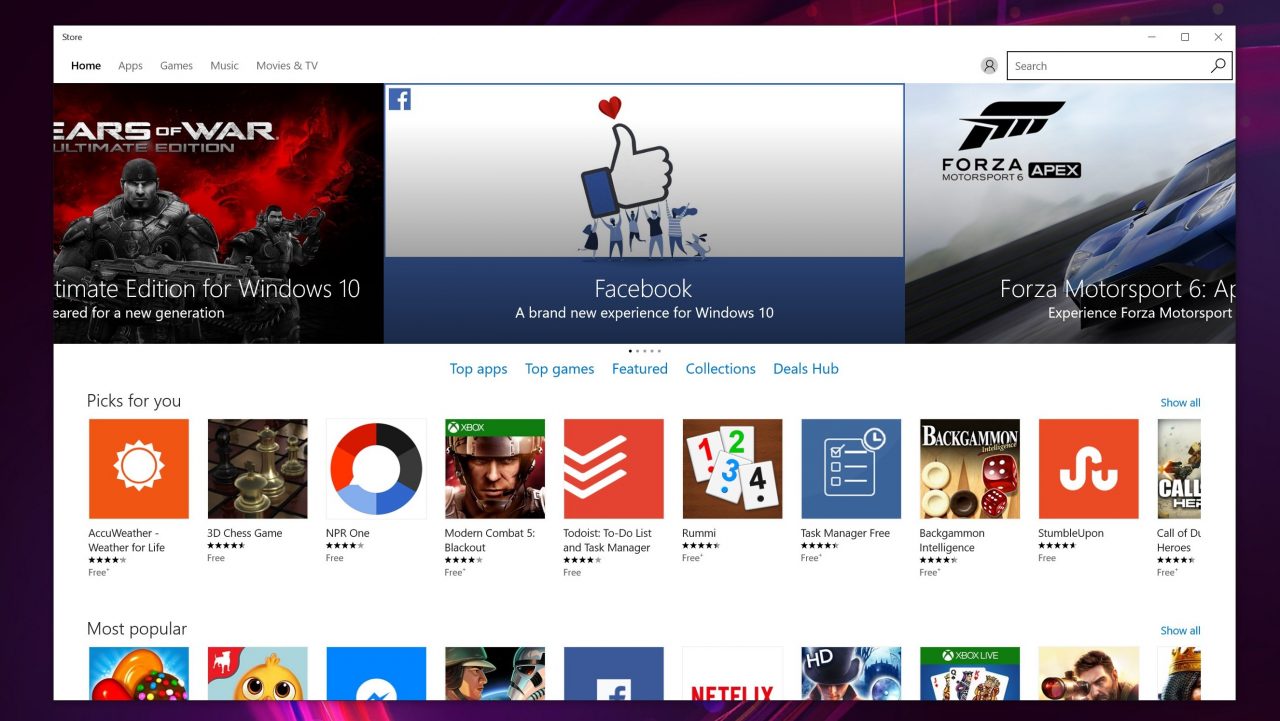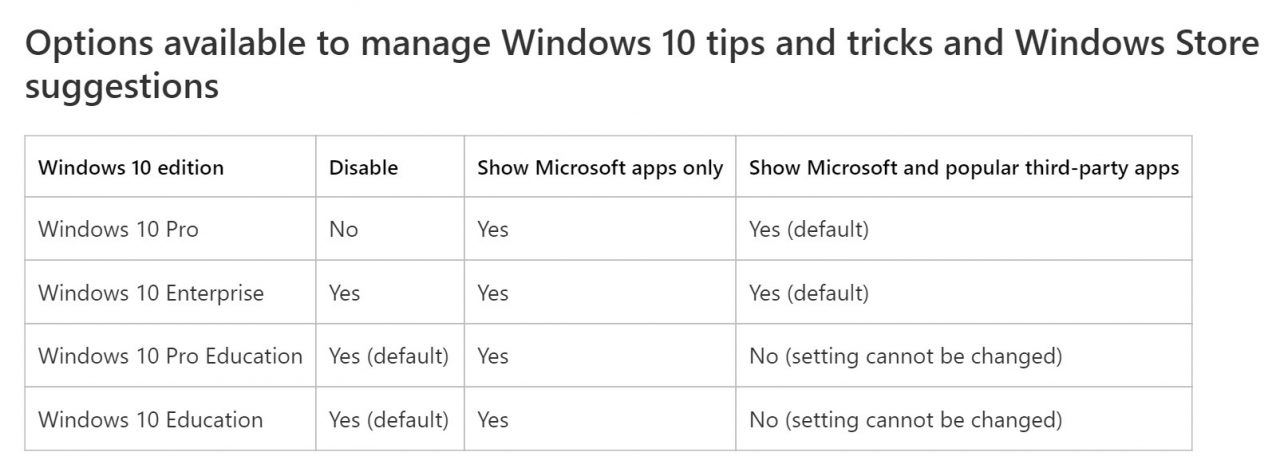Microsoft Cuts More Features From Windows 10 Pro To Push Businesses To Enterprise Edition
Earlier this month, Microsoft announced that its monthly subscription service for enterprise customers would start at $7 a month and it will launch later this year. If you are a business running Windows 10, large customers will almost always opt for the Enterprise edition but smaller and some medium sized companies have been using the Pro versions of Windows for several years.
Windows 10 Pro is the preferred operating system for small and medium sized business but Microsoft is making this edition less attractive to those users as they continue to cut features from the OS.
With the release of Windows 10 version 1511, the large update released in November, the company removed the option to disable Windows Store in Windows 10 Pro through Group Policy and with the anniversary update, they are removing additional features from Pro. Starting with the Anniversary update coming on August 2nd, you will no longer be able to manage Windows 10 tips and tricks and Windows Store suggestions.
The chart below outlines the options available to disable these features post 1607 (Anniversary update) is installed.
Specifically, after this update is installed, Windows 10 Pro will no longer be able to centrally manage Windows Spotlight on the lock screen, Start menu app suggestions, Windows tips, and Microsoft account notifications.
While this particular update is not significant setback for administrators of machines with this OS, when coupled with the removal of features with 1511, it begins to show how Microsoft doesn’t want companies to be using Windows 10 Pro in the workplace. By placing ads and apps in front of end-users, this opens up more pain points for IT Pros where users could try to install unsupported applications on a company network.
It’s not hard to draw the correlation between features being removed from the Pro version of Windows 10 and the company offering an easier way to use its Windows-as-a-Service offering that is coming this fall. Microsoft wants all companies using the Enterprise edition of its operating system as it creates re-occurring cash flow for the company, much like Office 365 has done from the transition from on premises to the cloud based offering.





